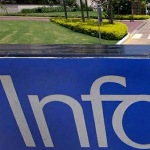Amit Dasgupta is the author of several books that have become popular among a cross section of readers. Among them are Indian by Choice and Indian for a Billion Reasons. The Lost Fragrance, however, is very different from the previous ones. Imbued with deep feelings about life and death, a sense of loss permeates every page, every paragraph of the book.
This work has been a long time in the writing. Perhaps that is why it is so close to the bone. As the author himself says in the Afterword, there came a time after many years when he realized that he would have to stop. This halting of the writing process was in a way another act of “letting go”, always a very difficult thing to do.
The book is an allegory, an extended metaphor. Among the several intertwined themes that wind through the book, one is the age-old battle between good and evil, the war for human souls. Humans, however, are not helpless pawns. They have been given the power to make choices. It is not evil that is to be feared, per se, but one’s ability to resist evil, to resist going over to the twilight land of the not-dead, not-alive . A person, in fact, can go in any direction. “Your choice determines your future,” as Little Girl’s father tells her before he leaves her.
Another theme is that the mind is much more powerful than we are even aware of. This is illustrated in various ways. From Crow’s learned ability to conjure up fantastic feasts with his mind, to Little Girl’s resistance to the lure of Evil, everything is, eventually, a battle of the minds. The power of thought, and ideas, is given great importance.
The story itself is a simple one, involving loss and self discovery. The chief protagonist is a child, but this is not really a children’s story. It is too complex and philosophical and layered to be read as one, though children should certainly enjoy the fantasy land and people that are described. This indeed makes it a story for all ages.
Like the Morality stories of Medieval England, the characters are categories, rather than individuals. This is the reason they have been given generic names, such as Little Girl, Crow, and Balloon. Little Girl in fact is Everyman. Even so, these are more than types. For instance, one begins to feel a little sorry for the evil Serpent when he discloses that his father disliked him even as a child. And yet his evil nature is not something that he can help having. That is the way he is, unlike humans, who have a choice to take the evil path, or not. And what appear to be aspects of simple fairy tales actually also have philosophical underpinnings. The people of the Land of the Blue Jasmines do not have solid bodies. A hand placed on a shoulder goes through thin air. This is because they are in the in-between state between death and life.
Along with the importance of choice, is the parallel theme of conscience. One’s mind is the litmus for distinguishing between good and evil. The Serpent, quintessentially Evil, betrays his presence by the overpowering stench that surrounds him. But when a human being succumbs to the Serpent, when his conscience is dulled or dead, he loses that ability to smell that stench.
Some of the tools that Little Girl is given to battle The Serpent are her innocence, her lack of greed, and music. Indeed, music plays a very important part in this story. There are important questions of death and letting go that form the bedrock on which this story rests. And yet it is lightly told, in language that is simple, and very lyrical. It is a very visual book, with recurrent images of stars, rivers, flowers and on the other hand, serpents with double heads and a hedge on a hillside that is alive with snakes.
The Lost Fragrance is a magical tale of good and evil that will appeal to both children and adults alike. Triggered by the loss of a parent, it is also inspired by a child’s reaction to that death, that child being the author’s daughter, Diya who has also designed the beautiful cover.
Amit Dasgupta IFS, who is currently India’s Ambassador to the Philippines said in an email interview
Tell us a bit about the genesis of The Lost Fragrance, how it took shape, and why you wrote it.
The Lost Fragrance grew, in fact, from a story I was trying to tell my daughter, to get her to go to sleep. My father was the story teller in the family and he would tell her stories every night. She was around 5 years old then. One lonely wet night in August of 1973, my father died and all of a sudden my world turned topsyturvy. Among the various things I had to learn to get used to was that the 3 women in my life were now my responsibility - my mother, my wife and my daughter. One night, my daughter told me she would like me to tell her a story so that she could go to sleep. It was the first timeI ever tried to tell anyone a story. The Author's Note has a bit about why I wrote it, how it took shape. And the annexed piece that I wrote on prompting by my publisher Shobit Arya and which was published in a magazine called 'Harmony' goes into the subject a bit more. But basically, like I mentioned in the Author's Note, it was something I created as I tried to get my daughter to sleep. At that time, it was about an ulta-pulta land where everything was upside down and nothing quite like what one expected. But I guess I wrote the book finally to capture a moment with my daughter [which she still remembers as to how I would be fast asleep, instead of her and the next night, she would ask me to continue from where I had started to snore!]. It was also a way of coming to terms with the loss of my father and the larger question of our inevitable mortality.
It is an allegory, an extended metaphor. Why did you choose this metaphorical form?
I chose this form basically to try and explore how much of it is something one can relate to immediately. There are characters that one has met, incidents that one has experienced. All of us would have known good people and some of us might have come across persons who are truly evil. Slimy, if you ever get to shake their hand. It seemed to me that a story book is a powerful medium to talk about such a theme. It might appeal to many age groups. But if I were to do a book, say for instance, on death and letting go, not too many people might wish to reach out to buy and thereby, to read the book. That is what I hope The Lost Fragrance does: reach out to different age groups and to different people. I also do not use names for any of the characters because I wanted them to be anybody and everybody. Names tend to classify people. 'Little Girl', for instance, can relate cross-culturally.
The style is simple, but the content is layered. How did you achieve this?
I had wanted all age groups to be able to relate to it. Death is not something 'for adults only' and yet, in many cultures, it is a subject no one wants to talk about and in any case, not in front of children. And yet, it was my five year old daughter who understood and accepted my father's dying, something I was unable to. We should never underestimate children. A story book type of writing also allows you the liberty of getting into multiple themes - layers - without having to have the different type of rigour a non-fiction book on a similar theme might require.
You have written several other books, and are working on another. Please tell us a bit about them.
I find writing, like cooking, therapeutic. I truly enjoy writing in as much as I enjoy reading. My new book is essentially about 'Why we do what we do'. It is, if you like, an extension....a sort of Part 2 of The Lost Fragrance. The central character of the book [after whom it is named] is a young model called Ruslana, who very quickly became a much sought after face. But, before the age of 21, she jumped off her balcony in Manhattan. Her last blog was, 'Who am I? Will I ever find myself?' It is a powerful question and a confusing one. The book explores this theme. My earlier books have essentially been edited books and principally on India. The Divine Peacock was the first book, followed by The Perennial Tree. There were a few others such as Children's Literature in India, etc. I wrote quite a bit, at one time, on issues related to development and trade policy and thus, on the Doha trade negotiation. My most recent books were Indian by Choice and India for a Billion Reasons. The Lost Fragrance is a very different type of book and the new one I am working on, is similar to TLF.
You have had a very busy and successful career in the Foreign Service, and are currently India's Ambassador to the Philippines. How do you find the time to do this so seriously? As a parallel career, as it were, and not a "hobby" only?
I find that it is important to learn to switch off. If we are able to switch off, focusing is much easier. We all find different ways of switching off. Some find it in music, others find it in gardening, for instance. I find it in books. Being a diplomat has its challenges - actually, any profession would have its demands. Naturally, I work on my book only early in the morning or at night or on weekends and holidays. As I said, it is a way of 'switching off' and I consider it very important to be able to do so. That way, you can give your best to both the worlds you straddle. Is writing a 'hobby'? No most certainly not. Chess is a hobby for me. So is gardening. I enjoy both chess and gardening but don’t feel diminished without them. But if one were to take writing or reading away from me, I would feel suddenly quite lost.
Which writers do you return to, again and again, and why? Do you feel you have been influenced by them in any way?
I would say I return to the old masters very often. Camus, Kafka, Gorky, Dostoevsky, Tolstoy, Tagore, Bertrand Russell, Hemingway, Zola, Cervantes, and many others.Yes, I think they have all shaped the way I think and view both myself and my external space. I have most certainly been influenced by all of them. But then, there have been many others too and books like Winnie the Pooh and The Little Prince. And films. I love cinema and some of these are films I am able to watch over and over again. They have deeply touched me and I am quite certain that they have impacted on the way in which in think.
How much of the personal is in this book, and did you make an effort to rise above your personal loss to a more general encompassing of the concepts of good and evil.
The book has the personal undoubtedly. My relationship with my parents, for instance. My loss at my father's 'going away', the grieving. And also, the letting go.Good and evil is a theme I come back to again and again, including in my new book because I believe 'values' are critical to living a meaningful life. We cannot live in a moral vacuum and hope to have lived meaningfully. How we find meaning in our life is left to us. The character of Magic, for instance, is I suppose a reflection of my fondness for cooking. The flute and music are again a reminder of my father, who could sing wonderfully. He was also the best story teller I have every met. Could listen to him for a lifetime and more! Have I been able to rise above my personal loss [of losing my father, for instance]? Yes, after having written TLF. But, does my writing reflect influences that are personal? I guess it does. But then, I don’t think I am different from anyone else in this respect. Much of what we experience personally creeps in, either through characters or through incidents we write about.
Anything else you would like to add.
How we adjust and cope is something we must find within ourselves. It is not something that is externally induced. It can never be. TLF tells us that letting go is necessary. 'You do not forget just because you let go. The fragrance stays.' However, it is something we have to bring ourselves to believe in before we recognize it to be true


